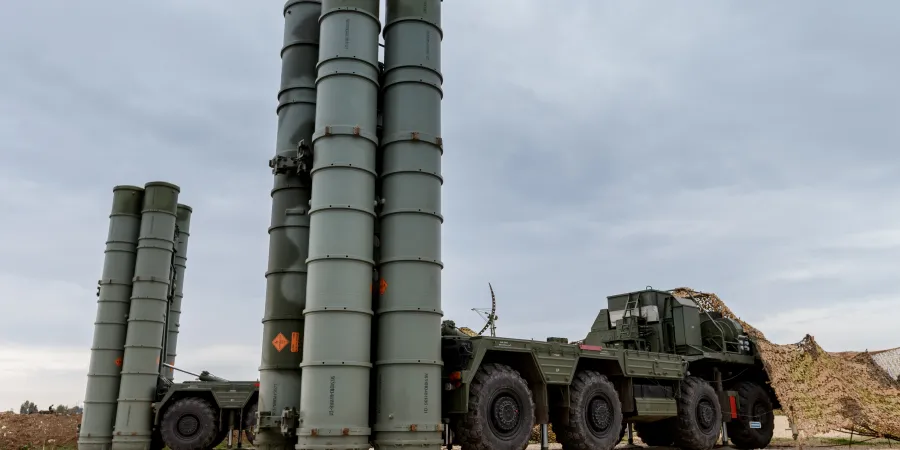Turkey Agrees to $2.5 Billion Deal for S-400 Missile Systems
Under the terms of the preliminary agreement, Turkey will receive two systems from Russia over the next year, and then two more will be produced in Turkey
IsraelDefense
| 16/07/2017
According to a Bloomberg report, Turkey has agreed the purchase of Russian-made S-400 air defense missile system for an amount of $2.5 billion. In 2016, it was announced that Turkey and Russia were in the process to negotiate the acquisition of the S-400 Triumf long-range air defense systems.
Under the terms of the preliminary agreement, Turkey will receive two systems from Russia over the next year, and then two more will be produced in Turkey, according to a Turkish official.
"[The deal] is a clear sign that Turkey is disappointed in the US and Europe,” Bloomberg quoted Konstantin Makienko, analysts at Moscow-based think tank Center for Analysis and Technology, as saying. "But until the advance is paid and the assembly begins, we can’t be sure of anything."
The Turkish official cited in Bloomberg’s report said technology transfer was a key factor in the decision. Turkey wants to be able to produce its own advanced air defense missile systems, and the Russian agreement to allow two of the S-400 batteries to be produced in Turkey would serve that aim.
"There are a lot of different levels of technology transfer," and any offer to Turkey would probably be limited in terms of sophistication, said Makienko. "For Turkey to be able to copy the S-400 system, it would have to spend billions to create a whole new industry."
According to Army Recognition, the S-400 Triumph (NATO reporting name: SA-21 Growler) is a long-range surface-to-air missile system produced by Almaz-Antey. It has a maximum range of 400 km and can reach an altitude of up to 30 km. The S-400 Triumph uses the 9M96E and 9M96E2 missiles. It can also use the 48N6E missile of the S-300 PMU-1 system and 48N6E2 missiles of the S-300 PMU-2 Favorit system.
Under the terms of the preliminary agreement, Turkey will receive two systems from Russia over the next year, and then two more will be produced in Turkey
According to a Bloomberg report, Turkey has agreed the purchase of Russian-made S-400 air defense missile system for an amount of $2.5 billion. In 2016, it was announced that Turkey and Russia were in the process to negotiate the acquisition of the S-400 Triumf long-range air defense systems.
Under the terms of the preliminary agreement, Turkey will receive two systems from Russia over the next year, and then two more will be produced in Turkey, according to a Turkish official.
"[The deal] is a clear sign that Turkey is disappointed in the US and Europe,” Bloomberg quoted Konstantin Makienko, analysts at Moscow-based think tank Center for Analysis and Technology, as saying. "But until the advance is paid and the assembly begins, we can’t be sure of anything."
The Turkish official cited in Bloomberg’s report said technology transfer was a key factor in the decision. Turkey wants to be able to produce its own advanced air defense missile systems, and the Russian agreement to allow two of the S-400 batteries to be produced in Turkey would serve that aim.
"There are a lot of different levels of technology transfer," and any offer to Turkey would probably be limited in terms of sophistication, said Makienko. "For Turkey to be able to copy the S-400 system, it would have to spend billions to create a whole new industry."
According to Army Recognition, the S-400 Triumph (NATO reporting name: SA-21 Growler) is a long-range surface-to-air missile system produced by Almaz-Antey. It has a maximum range of 400 km and can reach an altitude of up to 30 km. The S-400 Triumph uses the 9M96E and 9M96E2 missiles. It can also use the 48N6E missile of the S-300 PMU-1 system and 48N6E2 missiles of the S-300 PMU-2 Favorit system.



